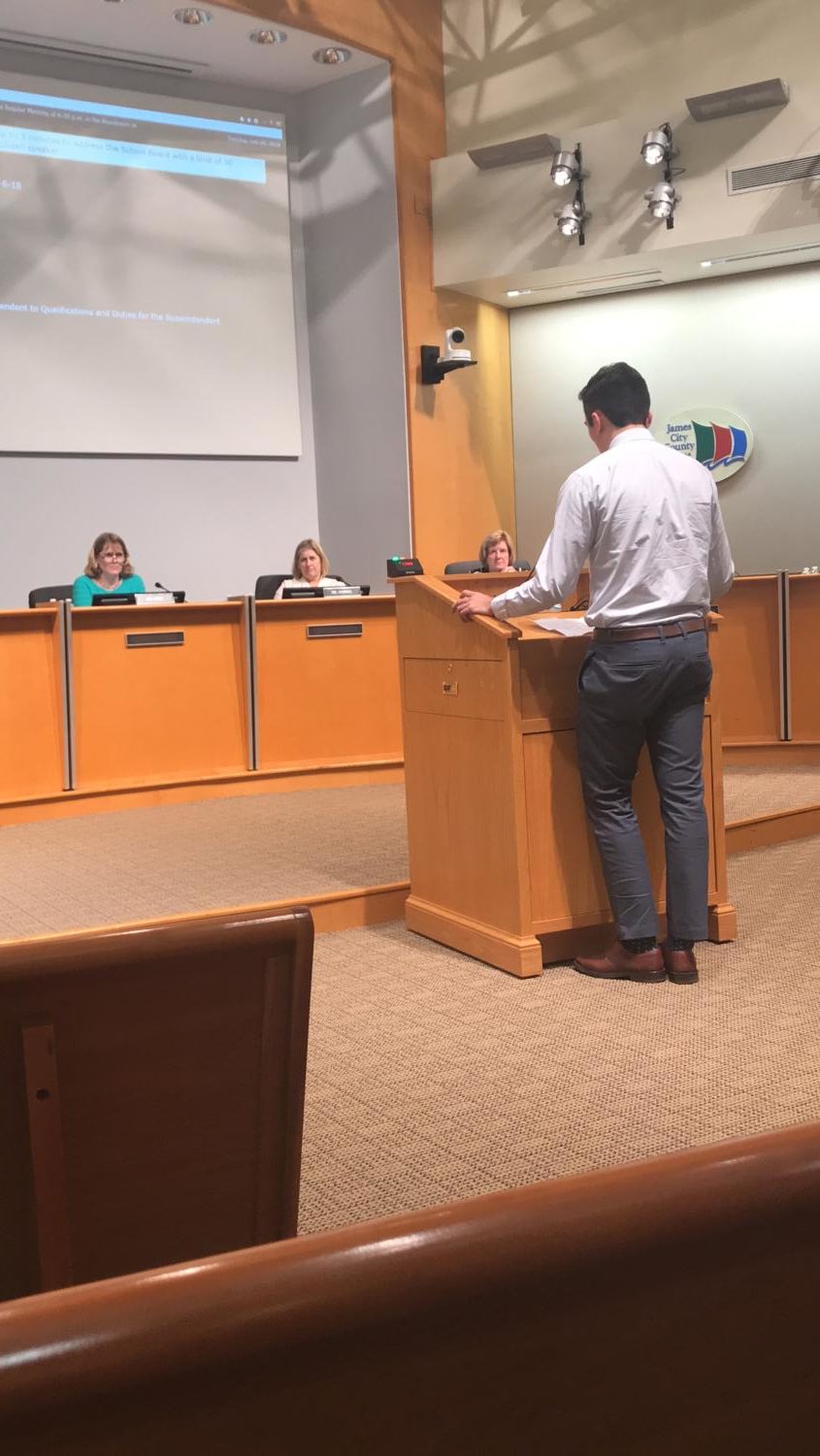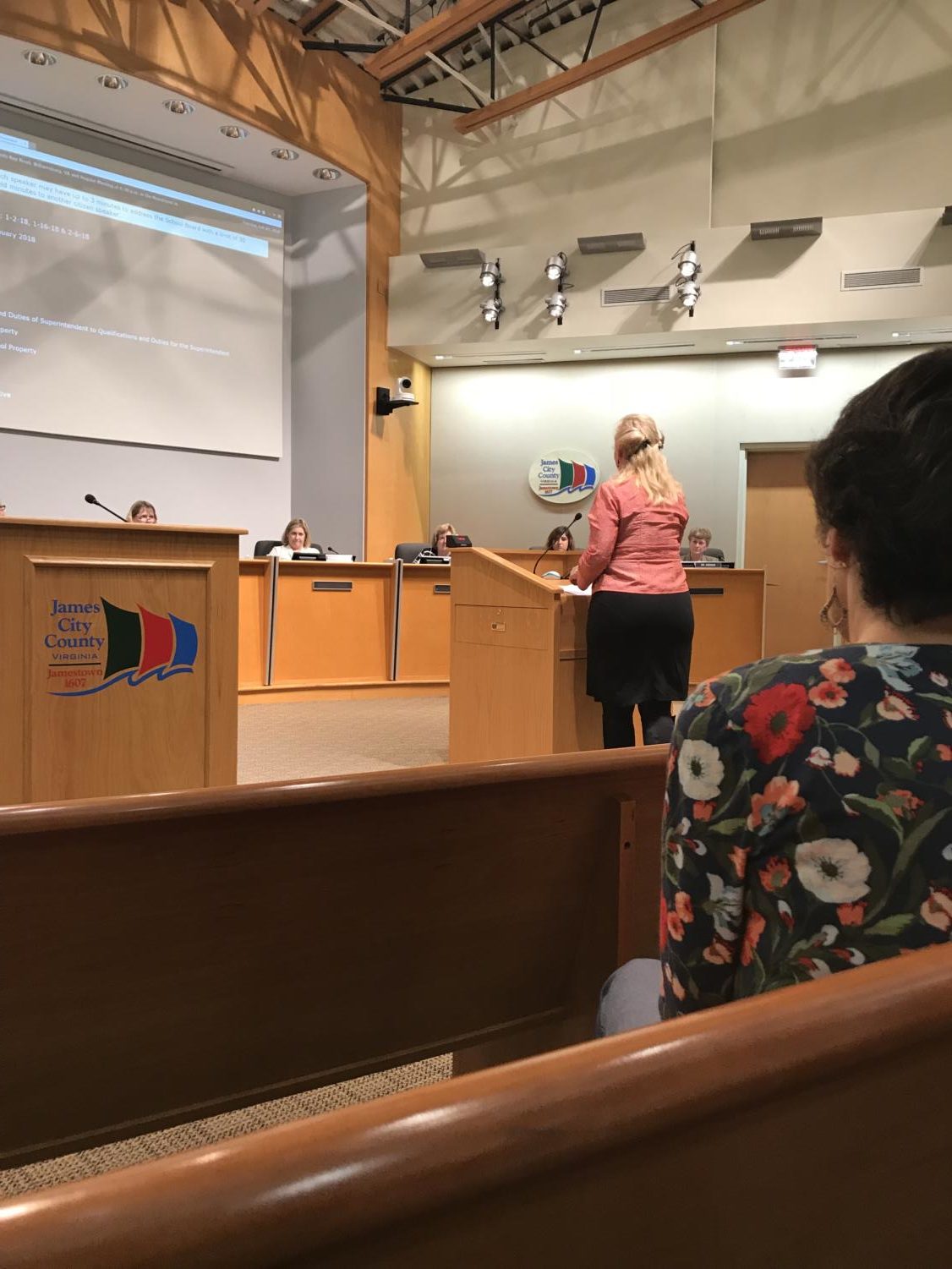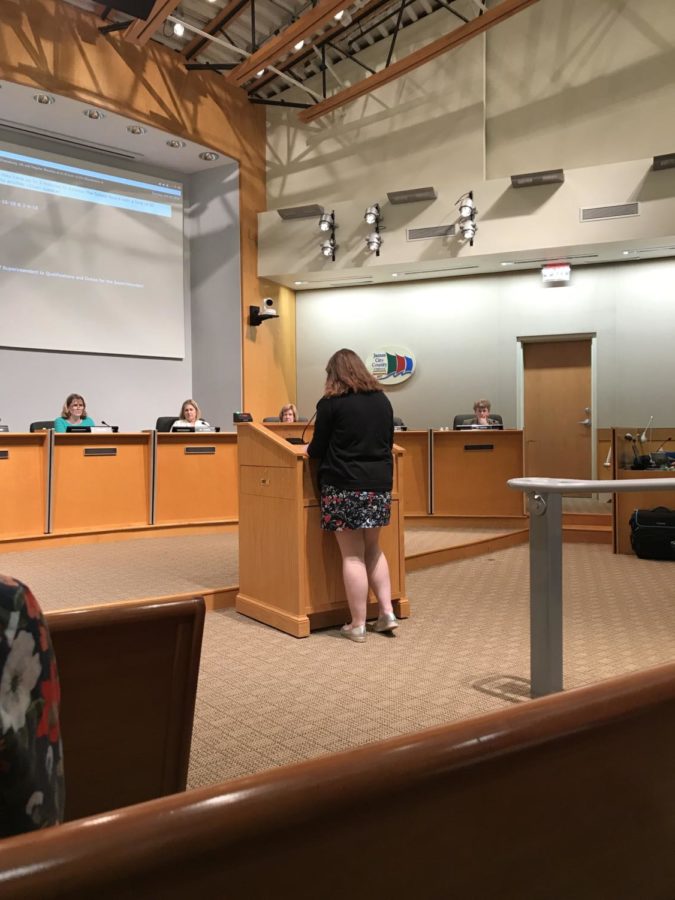LHS Students Fight for World Languages
Philosopher Ludwig Wittgenstein once said, “The limits of my language are the limits of my world”–a sentiment that was expressed quite passionately on February 2oth’s School Board meeting, when several Lafayette students took it upon themselves to speak out against reforms to the world languages departments within the WJCC School Division. Their efforts proved to be quite successful.
At the middle school level, foreign language exposure would have been delayed by one year, with introductory classes being pushed from sixth to seventh grade. During their 8th grade year, students would have had the opportunity to take one year of a high school level world language course. While these changes may seem slight, they would have created a variety of problems for young language learners. According to Carrie Collins, the head of the French department at Lafayette High School, these reforms to the middle school language curriculum would cause students to have “less exposure to the language in middle school,” and deprive students of “taking an intensified course in middle school.” In any case, the immediate repercussions of these changes would have caused serious issues in the nascent academic careers of middle school students.
While the proposed middle school reforms were flawed in their own right, things looked especially grim at the high school level. Recently, due to low registration numbers, upper level language classes, such as conversation and AP, have been offered online as a means of accommodating students who still have a desire to pursue these classes, despite being deprived of a normal classroom setting. In my experience, a classroom setting is absolutely crucial for learning a foreign language, as the value of a foreign language lies not in the basic skills accrued, but rather in multicultural, human connection—a connection that cannot be achieved on a computer. It’s safe to say that my fellow peers agree with this concept, as many students are often deterred by the virtual Virginia alternative. The reforms at the high school level would have also completely eliminated cinema classes from the class offerings—a change that would have further discouraged students from pursuing upper level language classes. Additionally, with fewer classes to teach, foreign language teachers would have had to relocate—possibly from school to school—which would ultimately result in job loss.

“I humbly implore that the School Board reconsider its stance on this issue,” said Ledger editor John Adkins, “so as to protect multicultural empathy and influence altruistic tendencies among all students.”
In response to these proposed changes, several Lafayette High School students took it upon themselves to act as ambassadors for foreign languages at February 20th’s school board meeting. Lafayette seniors Atlee Paterno and Jessica Poley took a direct approach in their speeches—emphasizing the importance of foreign languages while reflecting upon their own experiences. A precocious Lafayette freshman, Anne Ryan Gareis, expressed her desires to continue onto other upper level language courses with confidence and sincerity. Another Lafayette senior, Isabelle Gareis, discussed how her foreign language education influenced her dreams, and shared her wish for others to have the ability to pursue their dreams as well. These advocates for change demonstrated great poise and character, through their eloquent and powerful words. Their work was rewarded.
After hearing the speeches from the various students, Dr. Olwen Herron proposed that the reforms to language department should be deferred one year—an idea that was met with strong agreement. This decision was largely influenced by the concerns voiced by students at the meeting—whose opinions proved to be valuable in the eyes of the School Board members. “I think we lose our way when we don’t listen when people speak to us,” said Dr. Herron, “and I think there’s an opportunity to make some changes that will really help us.”

Carrie Collins, a French teacher at Lafayette, said that the meeting proved to be “a great success!”
Both students and faculty were overjoyed upon hearing the news of the school board’s decision.“I feel that the members of the school board truly heard the passion that students, parents, and teachers have for our world languages,” Collins said. “The members did and do value our opinions that we need World Languages. Due to their presentations, I feel that the students were the reason the board decided to vote for another year of discussion about the World Language changes to the program of studies.
This School Board meeting was a rare case in which students banded together to defend their passion for global empathy, their dreams of foreign connection, and their multicultural education. They made a difference. And while the future of foreign languages may be uncertain for the American public school system, if students continue to make their voices heard, if they connect, and if they communicate, the world will never fall silent.
The public commentary, which includes the students’ speeches, begins at 18:52.



